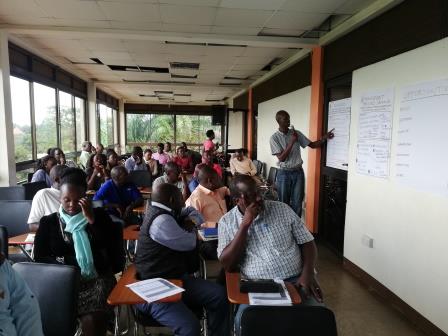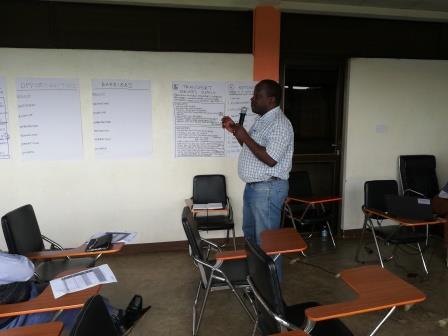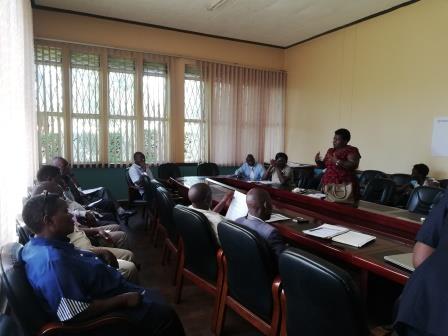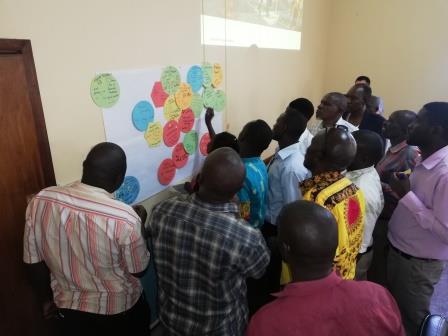When rapid urbanization in African cities is not met with adequate public transportation infrastructure, mobility becomes a challenge. Traffic gridlock plagues Ugandan cities although the motorization rate is still low. However, almost half of the road fatalities are pedestrians (40%) and cyclists (8%)[1], making investing in walking and cycling infrastructure urgent as Uganda’s economic development will lead to the expansion of road infrastructure and more middle-class car owners. If the current transport paradigm persists, pedestrians and cyclists will be further alienated. Creating a livable future through proper transport planning and implementation becomes crucial as mobility is imperative to economic growth and social development.
The “Cities SHIFT: Capacity Building and Networking for climate- and people-friendly mobility” supports cities to identify challenges and opportunities of its urban mobility system with the hope that the cities could shift towards more ecomobile modes of travel, i.e. walking, cycling, shared and public transport. Funded by Hewlett Foundation and EcoMobility Alliance, a key part of this project is to adopt EcoMobility SHIFT+, a methodology designed for cities to measure the urban mobility performance and make informed decisions based on the areas that need improvement. Entebbe and Jinja are the pioneer cities in Africa undertaking this assessment.
A unique benefit of this process is that it will engage different key actors and learn from outcomes. During the recent workshops in both cities, political leaders and stakeholders from the city administration, traffic department, civic groups, Boda and Matatus Association, and press were represented. They provided a different perspective on the current development trajectory and debated on short- and long-term interventions to improve ecomobility in the respective cities.
The fundamental challenge both cities face is the informal sector that dominates the economic and physical space. To fill the void unmet by formal transportation, informal services such as the boda motorcycle taxis and matatus minibuses grew organically and flourished, swerving through traffic carrying passengers or goods. However, the proliferation of boda raises grave concerns on safety, with ten being killed daily, of which 56% are pedestrians[2]. Even if sidewalks are available, the quality is poor and informal vendors and houses encroach into this space. Due to the lack of infrastructure provided for walking and cycling, the public perceives that such transport modes are for the poor. There is an interesting observation that all participants relate the notion of “cycling” to a boda, instead of a bicycle.
Some of the interventions that are decided by the stakeholders in both cities are to: demarcate areas for pedestrian and cyclists near the market; mandating the provision of pedestrian and cycling lanes in all road constructions; engage the national government to collaborate on improving the boda industry; set up a task group overseeing ecomobility; and hold an awareness-raising event for residents. The SHIFT Working Group that was formed in Jinja consisting the Deputy Mayor, Town Clerk, Financial Head, Environment and Urban Planning Heads will continue to ensure that proposals raised are implemented.
The ICLEI team will continue to work with cities to implement EcoMobility SHIFT+ as a process to encourage stakeholder participation and developing urban mobility plans. If you are interested to learn more about this tool, please contact us at ecomobility@iclei.org .
[1] UN Environment 2016 https://www.unenvironment.org/fr/node/8063
[2] UN Special Envoy on Road Safety 2018






